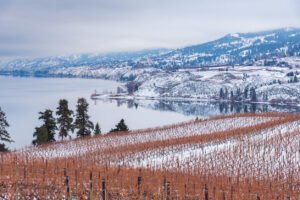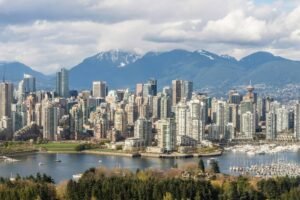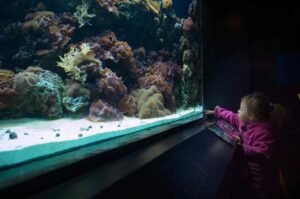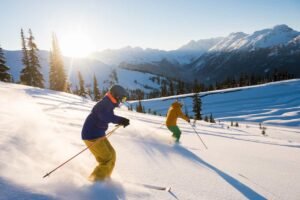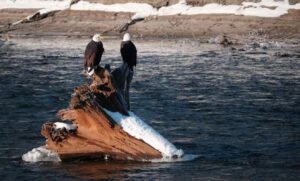British Columbia is home to a vibrant Indigenous culture, with many First Nations communities offering unique, immersive travel experiences that are deeply rooted in aboriginal history. Historically, these indigenous populations faced significant challenges due to European colonization, including loss of land, cultural suppression, and systemic discrimination. From luxury eco-lodges to hot spring resorts, these Indigenous-owned accommodations provide guests with not only breathtaking natural surroundings but also deep cultural connections to the land and its people. Choosing to stay at a First Nations-owned lodge is a meaningful way to support Indigenous tourism while gaining an authentic perspective on BC’s rich heritage. Here are some of the most incredible Indigenous-owned lodges in the province.
Exploring Indigenous Communities in British Columbia
British Columbia is home to over 200 distinct Indigenous communities, each with its own unique culture, language, and traditions. The province boasts a rich Indigenous history, with evidence of human habitation dating back over 10,000 years. Visitors have the opportunity to experience this vibrant Indigenous culture firsthand by attending traditional powwows, visiting cultural centers, or taking guided tours led by Indigenous guides.
Many Indigenous communities in BC are renowned for their traditional arts and crafts, such as intricate woodcarvings, beautiful weaving, and exquisite jewelry-making. These artistic expressions are not only a testament to the creativity of Indigenous peoples but also a way to preserve and share their heritage.
The province is also home to several Indigenous-owned and operated tourism businesses, offering a wide range of experiences from wildlife viewing to cultural tours. The Indigenous Tourism Association of British Columbia (ITBC) plays a crucial role in promoting and supporting Indigenous tourism in the province. ITBC provides resources and services for Indigenous tourism operators, including training and marketing support, ensuring that visitors can find authentic and enriching Indigenous tourism experiences.
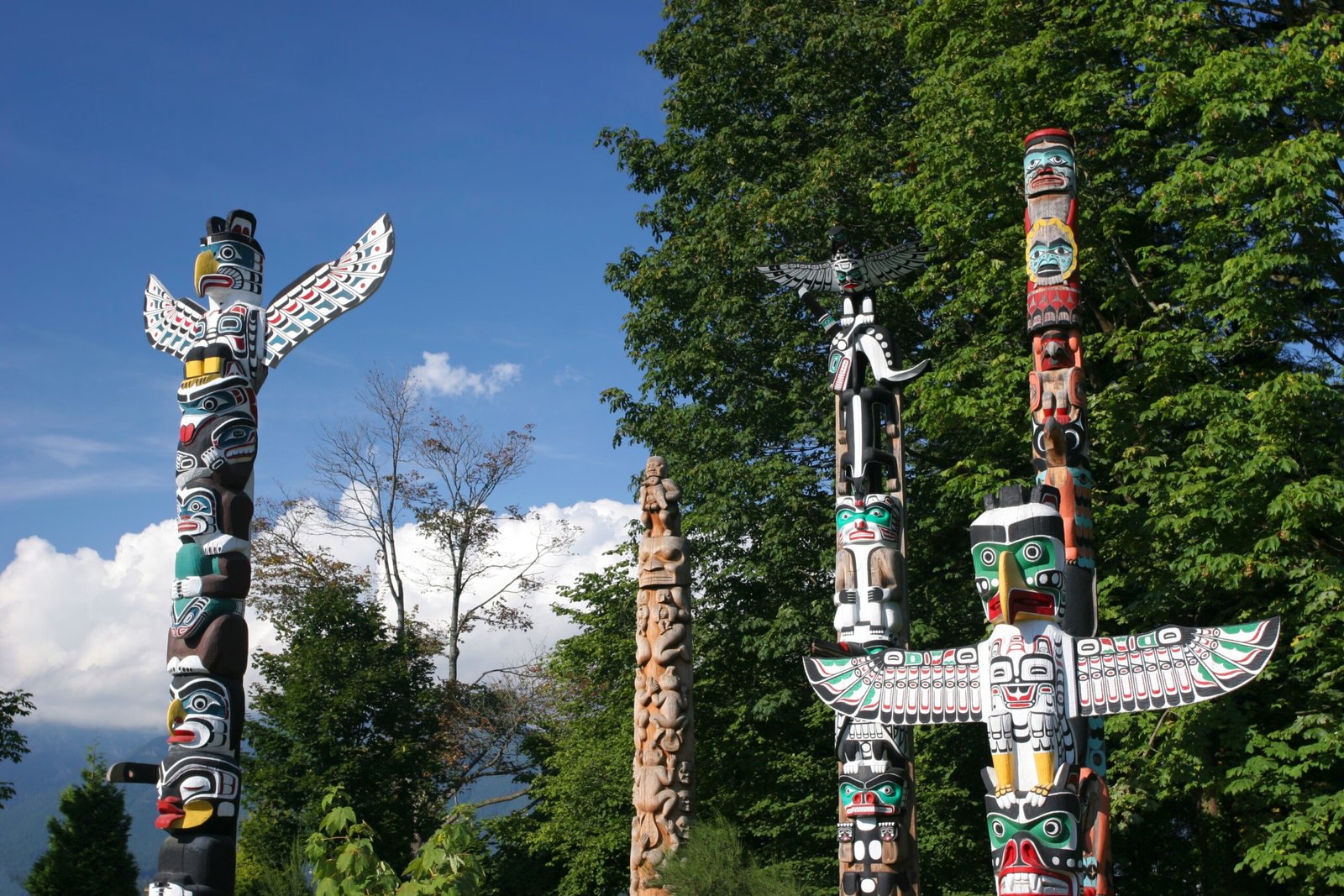
Indigenous Peoples of Canada
Indigenous peoples in Canada are the original inhabitants of the country. They comprise three main groups: First Nations, Inuit, and Métis. Each group has its own distinct culture, language, and history, contributing to the rich tapestry of Indigenous culture in Canada. According to the 2021 Census, there are over 1.8 million Indigenous people in Canada, representing 5% of the total population. These communities have a profound cultural heritage and have made significant contributions to Canadian society, from traditional knowledge and practices to contemporary arts and governance.
Skwachàys Lodge: Celebrating Indigenous Culture (Vancouver, BC)
Located in the heart of downtown Vancouver, Skwachàys Lodge is Canada’s first Indigenous arts hotel. The lodge supports a diverse range of Indigenous families, providing housing and studio spaces for artists from various Indigenous communities. Each of its 18 boutique rooms is uniquely designed by Indigenous artists, weaving traditional motifs and storytelling into the decor. Guests can explore the on-site gallery, participate in cultural experiences, and enjoy authentic Indigenous cuisine. The lodge is also a social enterprise, supporting Indigenous artists through housing and studio spaces.
Website: Skwachàys Lodge
Klahoose Wilderness Resort (Desolation Sound, BC)
This breathtaking, all-inclusive eco-resort is owned by the Klahoose First Nation and offers guests an intimate experience of BC’s remote coastal beauty. The Klahoose First Nation is one of the many indigenous nations with a rich history and cultural heritage in British Columbia. Set within the spectacular Desolation Sound, Klahoose Wilderness Resort provides guided wildlife excursions, cultural experiences, and unparalleled opportunities to witness grizzly bears in their natural habitat. The lodge’s Indigenous hosts share their rich history through storytelling, art, and traditional ceremonies.
Website: Klahoose Wilderness Resort
Haida House at Tllaal (Haida Gwaii, BC)
A stay at Haida House offers a deep dive into the rich culture of the Haida Nation. The Haida Nation is part of the larger indigenous population in Canada, known for its rich cultural traditions and history. Located in the pristine Haida Gwaii archipelago, the lodge features comfortable accommodations with a focus on sustainability and cultural immersion. Guests can take part in guided tours of ancient Haida village sites, meet local artists, and savor Indigenous-inspired cuisine made from local ingredients.
Website: Haida House at Tllaal
Spirit Bear Lodge: A Sanctuary for Indigenous Peoples (Great Bear Rainforest, BC)
Owned and operated by the Kitasoo/Xai’xais First Nation, Spirit Bear Lodge is an extraordinary place to connect with nature and Indigenous traditions. The Kitasoo/Xai’xais First Nation is part of the larger group of aboriginal peoples in Canada, each with their own unique traditions and cultural practices. Nestled within the Great Bear Rainforest, the lodge offers world-renowned wildlife experiences, including opportunities to spot the elusive white “Spirit Bear,” a rare subspecies of black bear sacred to the local Indigenous people. Guests can also enjoy boat tours, cultural storytelling, and traditional feasts.
Website: Spirit Bear Lodge
Wya Point Resort (Ucluelet, BC)
Located on the rugged west coast of Vancouver Island, Wya Point Resort is owned by the Yuułuʔiłʔatḥ First Nation and offers a variety of accommodation options, including oceanfront lodges, yurts, and campsites. The Yuułuʔiłʔatḥ First Nation is part of the larger group of aboriginal people in Canada, each with their own unique cultural heritage. Visitors can enjoy breathtaking views, world-class surfing, and guided cultural experiences highlighting the traditions of the local First Nations community.
Website: Wya Point Resort
Tsa-Kwa-Luten Lodge (Quadra Island, BC)
This oceanfront lodge, owned by the Laichwiltach people, is a hidden gem on Quadra Island. The Laichwiltach people, like many other Indigenous communities, have been affected by the Indian Act, which has shaped their historical and contemporary experiences. Tsa-Kwa-Luten Lodge provides guests with a peaceful retreat featuring spectacular views, Indigenous art, and cultural programming. Visitors can explore hiking trails, take part in guided cultural experiences, or simply relax in the tranquil surroundings.
Website: Tsa-Kwa-Luten Lodge
CrossRiver Wilderness Centre (Kootenay Rockies, BC)
Situated in the stunning Kootenay Rockies, CrossRiver Wilderness Centre offers eco-lodging in traditional-style tipis and cozy cabins. The retreat offers a unique opportunity to learn about the traditions and cultural practices of the nations peoples in the Kootenay Rockies. This Indigenous-owned retreat focuses on sustainability, adventure, and cultural education. Guests can explore the pristine wilderness, partake in guided nature walks, and learn about Indigenous traditions through storytelling and hands-on workshops.
Website: CrossRiver Wilderness Centre
Ainsworth Hot Springs Resort (Ainsworth, BC)
Operated by the Yaqan Nukiy people of the Ktunaxa Nation, Ainsworth Hot Springs Resort is a must-visit for travelers seeking relaxation and rejuvenation. The Yaqan Nukiy people are part of the larger North American Indian communities, each with their own unique cultural heritage and traditions. The resort’s natural mineral hot springs are revered by the local Indigenous community for their healing properties. Visitors can also enjoy Indigenous-inspired cuisine at the on-site restaurant, while taking in stunning views of Kootenay Lake and the surrounding mountains.
Website: Ainsworth Hot Springs Resort
Lasqueti Hotel (Lasqueti Island, BC)
For travelers looking for an off-the-grid escape, Lasqueti Hotel offers a unique experience on a remote island in the Strait of Georgia. The hotel is deeply connected to the aboriginal history of the region, offering visitors a unique opportunity to learn about the local Indigenous culture. The hotel is built with sustainability in mind and is deeply connected to the Indigenous history of the region. Visitors can enjoy kayaking, wildlife watching, and learning about local First Nations culture in a truly untouched setting.
Website: Lasqueti Hotel
Natural Resources and Land Management
Natural resources are integral to the traditional way of life for many Indigenous communities. Forests, fisheries, and wildlife are not only sources of livelihood but also hold cultural and spiritual significance. Historically, the management of these resources has been a contentious issue, particularly under the Indian Act, which has often led to the exploitation of Indigenous lands and resources. However, there has been a positive shift towards more sustainable and collaborative approaches to land management. Indigenous communities are increasingly playing active roles in decision-making processes, ensuring that natural resources are managed in ways that respect their cultural values and promote environmental sustainability.
Cultural Experiences and Activities
Indigenous culture is a vibrant and diverse tapestry of traditions, languages, and customs. Visitors to British Columbia can immerse themselves in this rich cultural heritage through a variety of experiences and activities. Attend a traditional powwow to witness the colorful regalia and rhythmic dances, or explore Indigenous art and crafts at local galleries and workshops. Many Indigenous communities offer cultural tours that provide insights into traditional hunting and gathering practices, visits to sacred sites, and storytelling sessions that bring ancient legends to life. These experiences offer a deeper understanding of the Indigenous way of life and the profound connection to the land.
Government of Canada’s Support for Indigenous Tourism
The Government of Canada recognizes the importance of Indigenous tourism in promoting reconciliation and supporting Indigenous economic development. To this end, the federal government has established several initiatives to support Indigenous tourism, including the Indigenous Tourism Fund and the Canadian Experiences Fund.
The Indigenous Tourism Fund provides financial support to Indigenous tourism operators and communities to develop and market their tourism products. This funding helps Indigenous communities create unique and authentic tourism experiences that showcase their rich cultural heritage.
The Canadian Experiences Fund also provides funding to support the development of unique and authentic Canadian tourism experiences, including those that highlight Indigenous culture. These initiatives are part of the government’s broader commitment to reconciliation and Indigenous economic development.
The Indigenous Tourism Association of Canada (ITAC) plays a pivotal role in promoting and supporting Indigenous tourism across the country. ITAC works with Indigenous tourism operators and communities to develop and market their tourism products, ensuring that Indigenous tourism is recognized and celebrated on a national and international level.
The government’s support for Indigenous tourism is not only about economic development but also about promoting cultural understanding and reconciliation. By supporting Indigenous tourism, the government helps Indigenous communities develop their own tourism industries, preserving their cultures and traditions for future generations.
Travel Tips and Recommendations
When traveling to Indigenous communities, it’s essential to be respectful of local customs and traditions. Here are some travel tips and recommendations to ensure a meaningful and respectful visit:
-
Learn about the local culture and history: Before visiting, take the time to educate yourself about the community’s background and traditions.
-
Be respectful of sacred sites and traditional lands: Always follow local guidelines and protocols when visiting these areas.
-
Support local Indigenous businesses and artists: Purchase souvenirs and services from local vendors to support the community’s economy.
-
Be mindful of your impact on the environment: Practice eco-friendly habits to preserve the natural beauty and resources of the area. By following these tips, you can ensure a respectful and enriching experience while visiting Indigenous communities.
Why Choose a First Nations-Owned Lodge? Supporting First Nations Communities
Staying at an Indigenous-owned lodge in BC is more than just a vacation; it’s an opportunity to experience authentic Indigenous hospitality, support local communities, and connect with nature in a meaningful way. These lodges are often supported by sustainable governments within First Nations communities, ensuring that tourism practices benefit both the environment and the local people. These lodges offer a deeper appreciation for the land, its history, and the traditions that have been passed down for generations.
By choosing to stay at these Indigenous-owned accommodations, travellers contribute to the preservation of Indigenous cultures while enjoying some of the most breathtaking destinations British Columbia has to offer.
Ready to plan your next adventure? Book your stay at one of these incredible lodges and experience BC through the eyes of its First Nations people.

